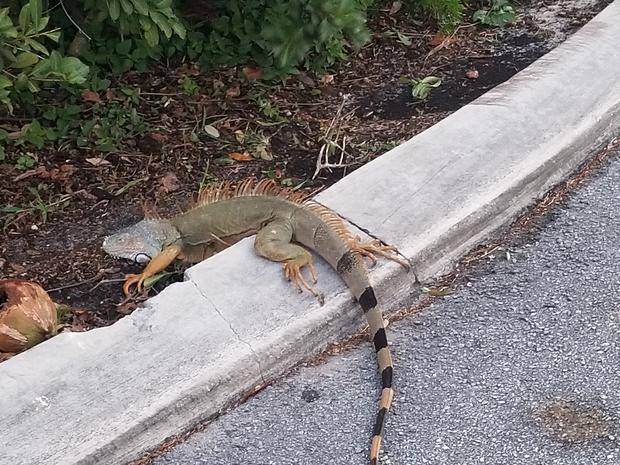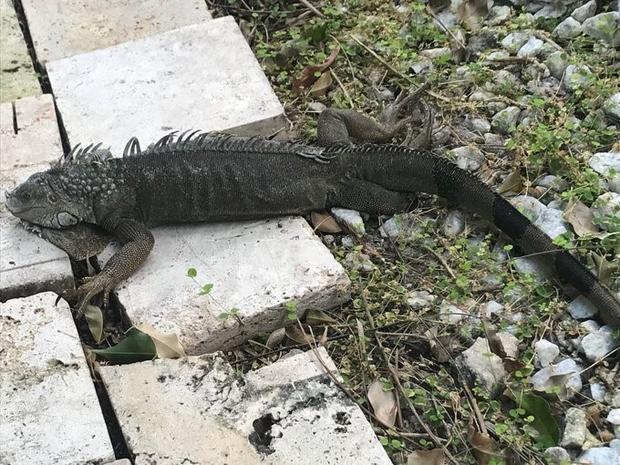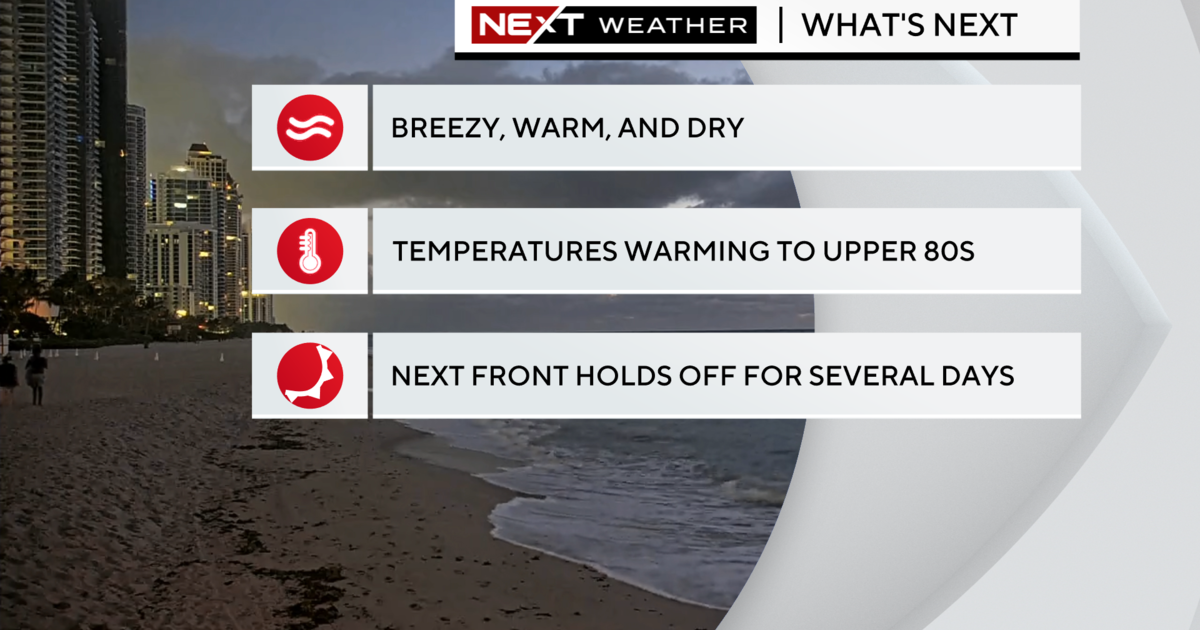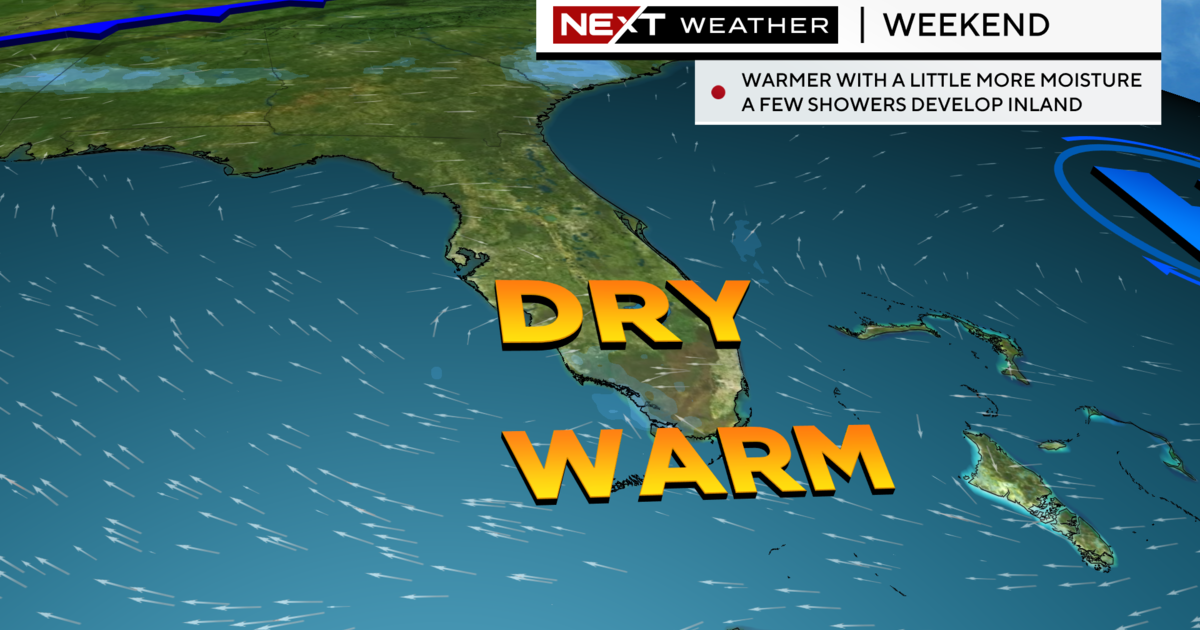Watch Out For Iguanas Falling From Trees
MIAMI (CBSMiami/CNN) - South Florida's cold snap has led to an unusual warning from the National Weather Service.
They say to watch out for iguanas falling out of trees.
Temperatures across South Florida Wednesday morning dipped into the low 40s, some spots saw upper 30s.
The invasive species can't handle cold temperatures very well because they are cold-blooded. In general, iguanas begin to get sluggish or lethargic once the temperature drops below 50 degrees Fahrenheit.
Once the temperature drops below 45 degrees Fahrenheit the iguanas go into a dormant or cold-stunned state. They appear to be dead, but they are not. They remain breathing with critical body functions still operating.
"The temperature threshold for when iguanas begin to go into a dormant state depends greatly on the size of the iguana," explains Ron Magill, communications director for Zoo Miami. "Generally speaking, the larger the iguana, the more cold it can tolerate for longer periods."
Iguanas often sleep in trees, so when their bodies go dormant, they appear to fall from the sky onto streets, cars, pools, or even people walking around. And since iguanas are large -- adult males can reach 5 feet in length, and weigh up to 20 pounds -- this can be dangerous if one lands on top of you.
"One of those chilled iguanas that fell out of a tree into my side yard Wednesday morning in Pompano Beach," CBS4's Joan Murray tweeted out with a picture of it.
Many iguanas in South Florida have adapted to going deep into burrows where they stay insulated from the cold. They tend to also live close to large bodies of water, which tend to be warmer than the air temperatures, which help them survive short cold snaps.
Not everyone is concerned about the well-being of these iguanas, though. They are considered an invasive species, so some people are looking forward to an opportunity to rid their yards of these reptiles.
"I do know that there are several iguana hunters that are looking forward to this upcoming cold front as it will certainly facilitate them removing these invasive reptiles from the South Florida environment as they will not be able to run away!" Magill said.
The non-native green iguanas aren't dangerous or aggressive to humans. They've become infamous for nuisance pool pooping and munching on ornamental landscapes. They also dig lengthy tunnels which can cause damage. The City of West Palm Beach said burrowing by invasive reptiles into the soft dirt around an aging dam cost has cost them $1.8 million in emergency repairs.
(©2020 CBS Broadcasting Inc. All Rights Reserved. Cable News Network, Inc., a Time Warner Company, contributed to this report.)





